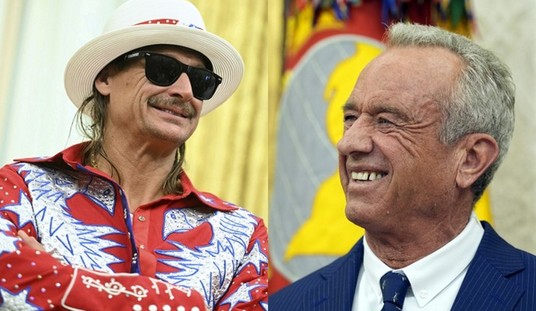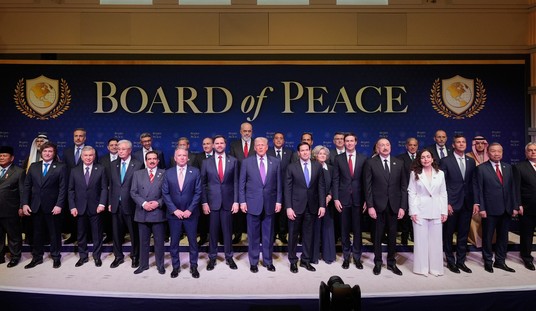
There are a lot of social justice concepts that truly annoy me, but at the top of them all sits the concept of “cultural appropriation.”
For those unfamiliar with the SJW deluge of cultural rules you must follow and sins you can potentially commit, “cultural appropriation” is the idea that doing something that was first created by a different culture, then you are appropriating that culture in order to benefit and thus you are a racist ingrate. It should be noted that in order for this to apply, the culture must be non-white…go figure.
In other words, if you aren’t black and you wear dreadlocks, you’re a racist and must revert your hair to a different hairstyle because, as some groups will claim, the dreadlocks hairstyle originated in black communities and cannot be worn by any other ethnicity.
Recently, the exercise company “Peloton” was accused of cultural appropriation by NBC News writer David Kaufman who, according to the Daily Wire, believes that Peloton’s instructors aren’t diverse enough and that using hip hop music so freely during their training sessions is appropriating black culture:
Writing for NBC News’ THINK platform, African-Americna writer David Kaufman claims that, while he’s found his Peloton spin bike incredibly useful during the coronavirus pandemic, when most gyms are locked down to prevent the spread of the virus, he’s concerned that the company has a “race problem” and that its mostly white instructors are pigeonholing rap and hip-hop artists and appropriating language more typically associated with black culture in order to encourage Peloton’s mostly white consumer base.
“It’s not that Peloton the company is actively racist or has even failed at being #woke; a quick spin through Peloton’s app or blog reveals that the brand is intentionally including racially conscious content throughout their marketing materials,” Kaufman says.
The streaming workout programs, though, are a different story. “Black instructors offer rides filled with typically “Black” music (rap, Caribbean or hip-hop) while white instructors offer ones with mostly “white” music (rock, pop and heavy metal) — though the thought that white people don’t work out to rap or hip-hop music and Black people don’t use rock or pop music to fuel their sessions in 2020 is laughable,” he says.
“Also curious — and curiously concerning — are the ways in which white Peloton instructors take on the affect of typical African American cultural tropes, using phrases like ‘go gurl,’ or ‘yassss b—-es’ to whip their riders into a frenzy,” Kaufman adds. “Yes, I realize that Black-inflected drag culture is now mainstream thanks to ‘Pose’ and ‘RuPaul’s Drag Race’ and that digital culture can often transcend traditional notions of race, but absent actual Black people, this type of cultural appropriation and tone-deafness feels woefully out of touch at a time when class and race-based inequalities are literally killing thousands.”
He’d have a point if it weren’t for the simple fact that cultural appropriation isn’t actually real.
To be clear, cultural appropriation can only survive as a concept if cultures were ownable by a skin color. They aren’t. Countries contain lifelong residents that don’t have the same melanin levels as the country’s primary residency. A black man may have ancestors descending from Africa but he may have been born and raised in Japan. His ancestry is African but his culture is Japanese. It’s what he knows best. It’s what he interacts with most.
A race can belong to a culture but a culture cannot belong to a race.
Secondly it should be understood that art and ideas can truly belong to no one. Sure, a creation can be someone’s idea forever, but humanity will take that idea and altar it, improve it, or change it in order to create new art. Music is a great example of this as the black community created hip hop. The music genre became so popular that cultures all over the world began to utilize it in their own ways.
For more on that, I’ve created a helpful video below.
Telling Peloton that they’re using music and word styles in such a way that it steals from black people is an absurd concept because this music and manners of speech aren’t a finite resource and not only that, you can’t claim ownership of spoken word. If you could, then any English speaker had better pay up to a myriad of cultures since English is a mutt language. In fact, just stop speaking it altogether since, by the SJW’s own rules, it’s racist to say these words without permission from the culture that birthed them, and good luck tracking the lineage down.
The moment art is released into the world, it becomes the world’s. Ideas will spring from that piece of art like seeds which will grow into new art. The same can be said with words, inventions, techniques, and if given enough time and importance, traditions.
The concept of cultural appropriation is just control of the culture, and controlling culture isn’t possible. You might as well try to use your finger to plug a breaking dam.














